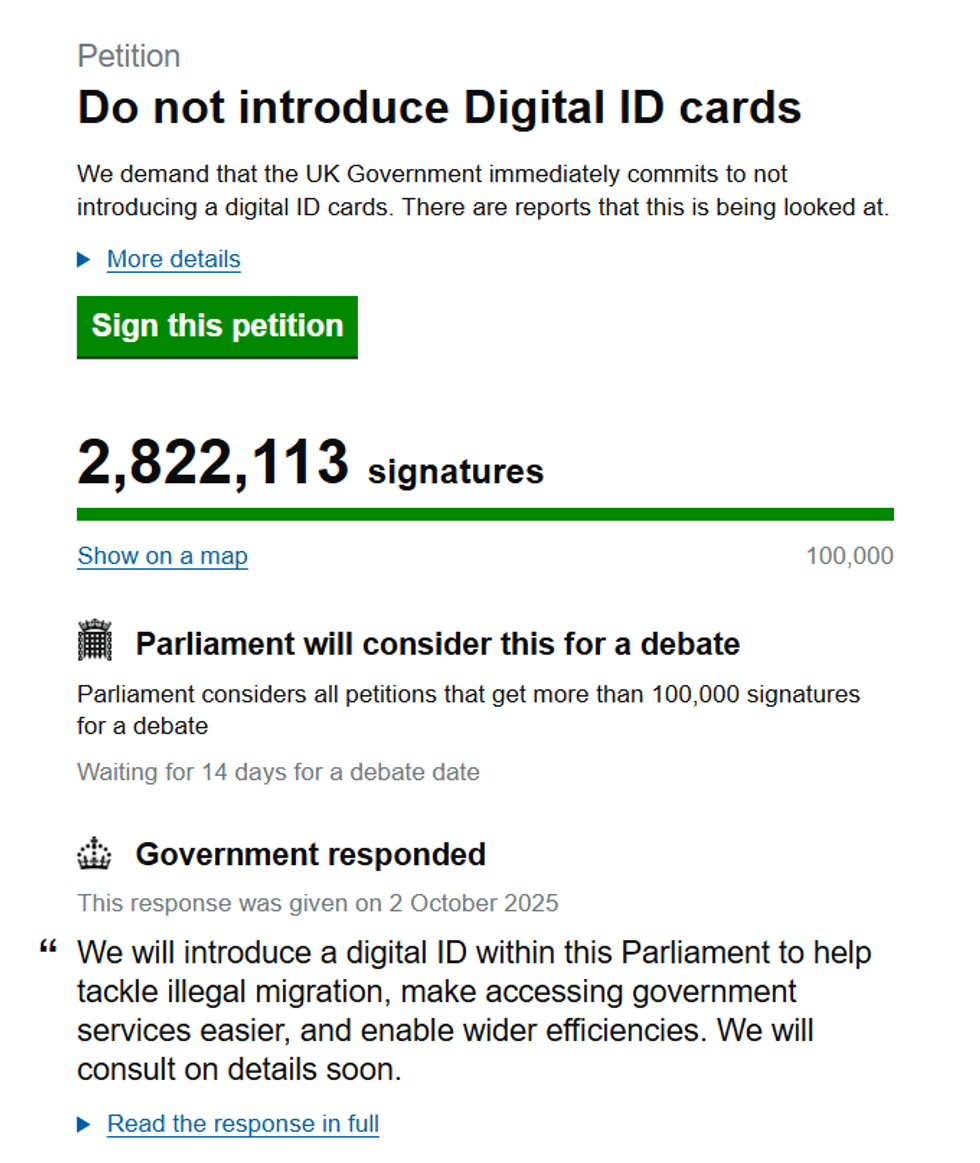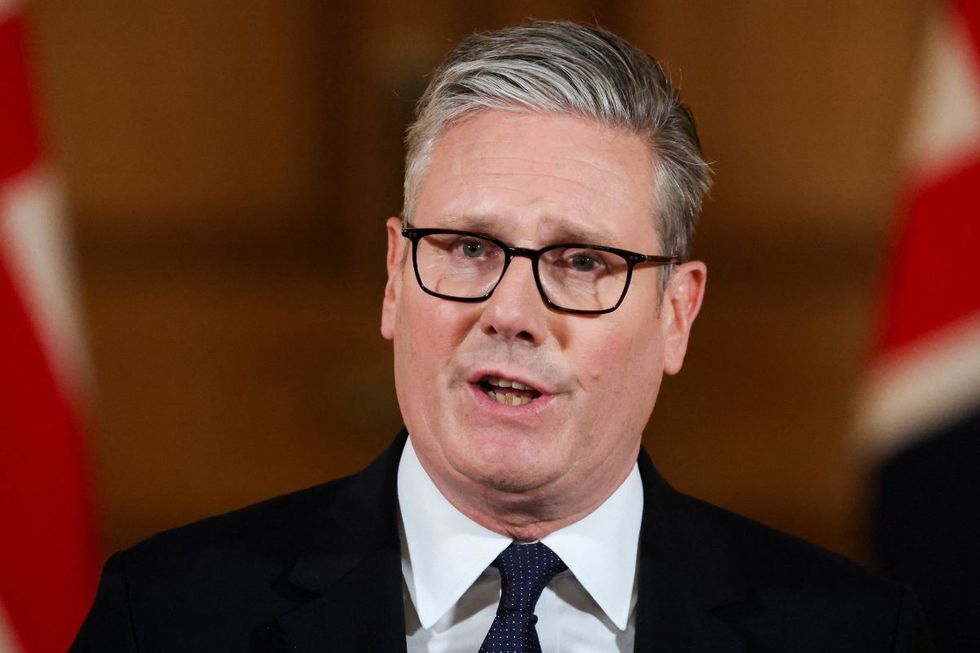Backlash continues to grow over Sir Keir Starmer’s plans to roll out digital IDs across the UK, with recent polling from More In Common saying 45 per cent oppose the Government’s scheme.
This is up from just 19 per cent in June, when 53 per cent previously favoured it.
Support for the scheme has dropped to less than a third, with only 31 per cent backing the Government’s plans.
Over 2.8million people have now signed the petition to scrap digital IDs, with plans for the ID system to be introduced by 2029.
Pollster George Buchan believes the Government’s lack of proper clarity about what they were rolling out led to the fierce backlash.
He told GB News: “This probably comes down to saliency. It wasn’t an issue people were thinking about earlier in the year.
“By announcing it and bringing it into the public gaze, the Government has made it salient, and people have had to take a position on it.”
The Government states it will be mandatory for people to own a digital ID to curb illegal migration.
LATEST DEVELOPMENTS
- Keir Starmer shuts down calls to stop introduction of Digital ID after 2.7million Britons fight back against plan
- New digital ID card will not be known as ‘BritCard’, says No10 as support plummets
- Fresh nightmare for Keir Starmer as BIGGEST ever poll delivers damning verdict on digital ID

When asked about why people are opposing the plans, Mr Buchan said: “People will oppose it for many reasons.
“A common one with issues like this is that generally, there is opposition to handing the Government new powers or new controls, whatever they may be.”
Two in three Britons have safety concerns surrounding the scheme, feeling they cannot trust the Government to keep their data secure.
Polling from Big Brother Watch found 63 per cent of Britons do not believe the Government could keep their personal information safe.
The Afghan data leak acts as a bad track record for the Government, with details of more than 18,000 people who had applied for asylum under the Afghan resettlement scheme ending up in the hands of the Taliban.
Mr Buchan believes there is also a “lack of knowledge” surrounding the scheme.
He explained: “You see very often that people will oppose things that they do not understand.
“This could be to do with the issue itself or how it may affect them. As a result, people will oppose it.”

A Labour MP criticised the Government’s lack of transparency when introducing digital ID, saying it is not doing enough to combat the spread of online conspiracy theories.
Chi Onwurah, Labour MP and chair of the Science and Technology Committee, told PoliticsHome: “We have seen a significant amount of misinformation amplified by the [social media] platforms around digital ID. I haven’t seen an effective response from the Government.”
Perhaps adding to the lack of transparency, the Government responded to the petition saying it “will consult on details soon”.
Its response read: “We will introduce a digital ID within this Parliament to help tackle illegal migration, make accessing Government services easier, and enable wider efficiencies.”
Our Standards:
The GB News Editorial Charter







Follow